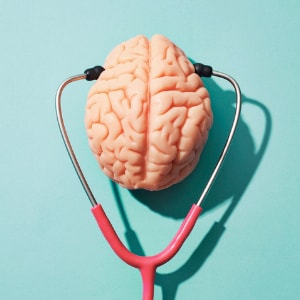Heart/Mind Connection: Depression Often Linked to Heart Issues
Depression and heart disease is definitely a two-way street.
For years, scientists have known about the relationship between the two. In fact, up to a quarter of heart patients suffer from depression, and adults with depression often develop heart disease.
“Stress affects everything,” said April A. Balzhiser, MA, LCPC, ICDVP, Program Director at Silver Oaks Behavioral Hospital in New Lenox. Silver Oaks is located on the campus of Silver Cross Hospital. “If one part of us is off, all of us is off.”
According to an article from the Cleveland Clinic, up to 15 percent of patients with cardiovascular disease and up to 20 percent of patients who have undergone coronary artery bypass graft (CABG) surgery experience major depression.
Studies have shown that mental stress has a negative effect on a person’s heart health. Unmanaged stress can lead to high blood pressure, arterial damage, irregular heart rhythms, and a weakened immune system.
For people with heart disease, depression can increase the risk of an adverse cardiac event such as a heart attack or blood clots. For people who do not have heart disease, depression can also increase the risk of a heart attack and the development of coronary artery disease.
In one landmark study, the article said, the continued presence of depression after recovery increased the risk of death (mortality) to 17 percent within six months after a heart attack (versus 3 percent mortality in heart attack patients who didn’t have depression).
Also, during recovery from cardiac surgery, depression can intensify pain, worsen fatigue and sluggishness, or cause a person to withdraw into social isolation. Patients who have had CABG and have untreated depression after surgery also have increased morbidity and mortality.
 In fact, according to the Cleveland Clinic article, Depression has been proven to be such a risk factor in cardiac disease that the American Heart Association (AHA) has recommended that all cardiac patients be screened for depression.
In fact, according to the Cleveland Clinic article, Depression has been proven to be such a risk factor in cardiac disease that the American Heart Association (AHA) has recommended that all cardiac patients be screened for depression.
Not that some depression following major surgery is uncommon. The Cleveland Clinic article notes that If you’re recovering from heart surgery, a heart attack or another heart condition, temporary feelings of sadness and a depressed mood are common for the first few weeks.
However, treatment is necessary when depression is severe and accompanied by other symptoms (including withdrawal from activities, not responding when visiting with family and friends, increased negative thoughts, and tearfulness).
A Johns Hopkins Medicine article notes depressed heart attack patients can have decreased motivation to follow healthy daily routines, which can result in skipping important heart medications, avoiding exercise and proper diet, and continuing or intensifying smoking and drinking habits.
They also can experience changes in their nervous system and hormonal balance, which can make it more likely for an arrhythmia to occur. The combination of depression and a damaged heart (from a heart attack), seems to make people particularly susceptible to potentially fatal heart rhythm abnormalities, according to the article.
“It is imperative, then,” Balzhiser said, “to make sure people are monitored closely in both situations.”
“When our patients come in, they are given a full history and physical within 24 hours,” she said. “Absolutely, there have been times when we have noticed heart issues, and if currently managed, our medical staff will monitor them in-house while they are with us for their behavioral health needs. If they are more severe, we’ll refer them for specialty cardiac services at Silver Cross next door.”
“On the other end of the spectrum, if doctors and nurses notice a cardiac surgery patient struggling with emotions,” Balzhiser said, “they will refer them to Silver Oaks.”
“Not all heart patients struggle after surgery,” she added, “and not all show symptoms right. It’s not unusual for Silver Oaks to get a call from a heart patient weeks later asking if what they’re feeling is normal post-surgical fatigue or depression.”
“A lot of your recovery has to do with your outlook,” Balzhiser said. “Some people are relieved to be feeling better, and that eases a lot of their stress.”
“The key is, you have to take care of your whole body, and not just put one part over another.”